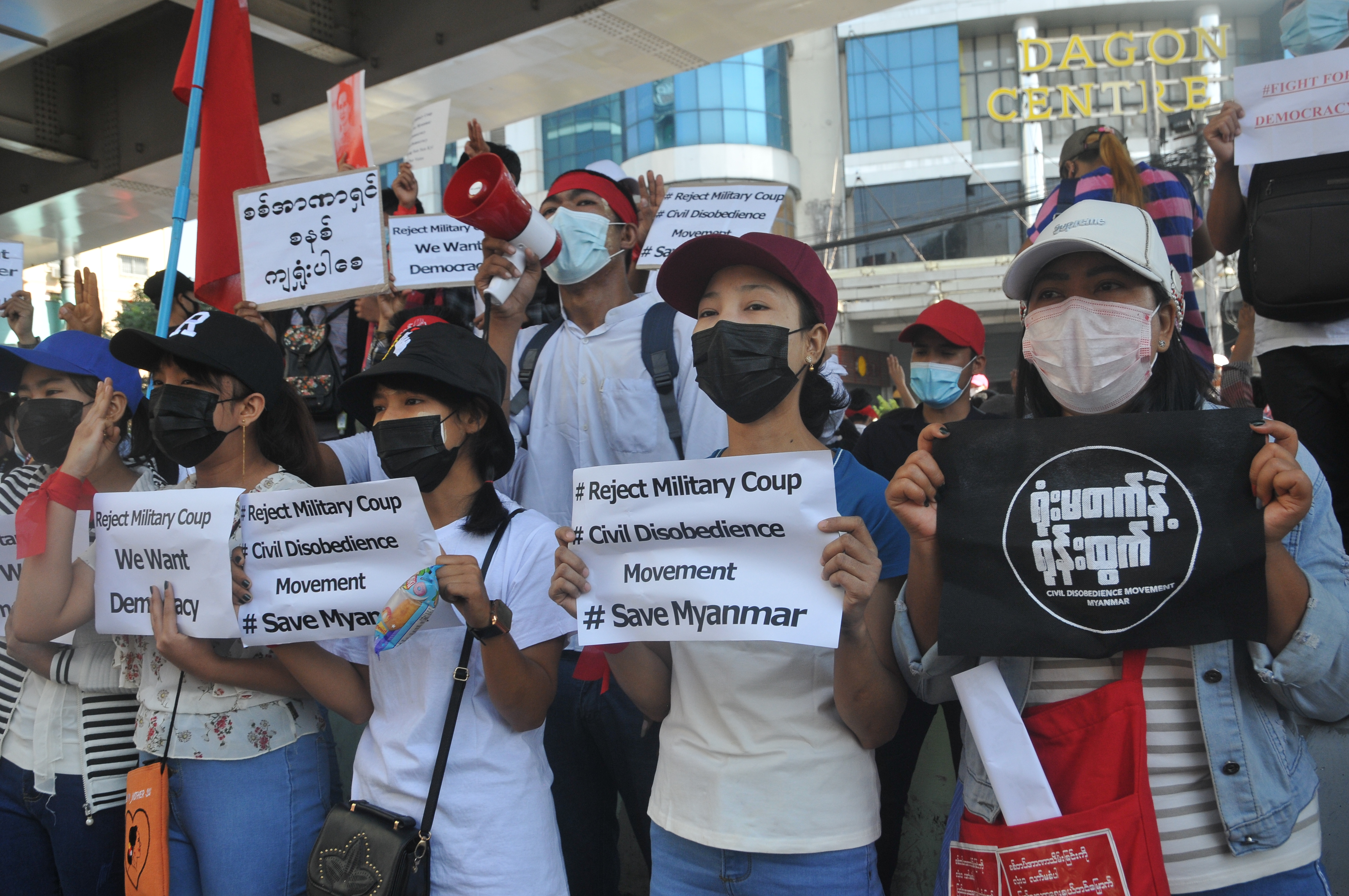|
|
|
Today is Union Day in Myanmar, which marks the historic Panglong Agreement in February 1947 when the principles of equality and unity were drawn up for the future union. In 2021, however, it is not a day of celebration but one of protest as peoples across the country take to the street to demonstrate against the assumption of power by the military State Administrative Council. In this commentary, TNI analyses why the present crisis is so profound and why the patterns of military rule, state failure and ethnic conflict are in grave danger of being repeated. Peace and national reconciliation are required today, not at some indeterminate time in the future.
These commentaries are intended to contribute to a broader understanding to the many challenges facing the country and its peoples.
See the complete list of all the Myanmar commentaries.
|
|
|
|
 Demonstrations in Yangon on Union Day, 12 February 2021 Demonstrations in Yangon on Union Day, 12 February 2021
|
|
|
|
|
|
|
| |
| History Repeated: Another Roadblock on Political Change in Myanmar |
|
A Commentary
12 February 2021
The prospects for peace and democratic transition in Myanmar are at a perilous stage. Since independence in 1948, the country has been entrapped in a cycle of conflict, state failure and political impasse in which the aspirations of the people for democratic rights and political freedoms have consistently been denied. Whether under elected or military administrations, ethnic conflict and political violence have continued through all governmental eras, perpetuating loss of life and immeasurable suffering in communities across the country. All the peoples have suffered, and threats to livelihoods and security have been especially pronounced during times of intra-governmental rivalry and change. This must not happen again.
The post-colonial experiences of Myanmar (formerly Burma) provide stark warning. Roadblocks have been put in the way of democratic reform with systematic regularity in every field of national life. There have been five general elections since 1960, and the latest military interdiction is the third time that such an obstacle has been imposed by the Myanmar armed forces (Tatmadaw). Through such interruptions, the shadow of military rule has continued. In the footsteps of Gens. Ne Win and Than Shwe, a new military strongman, Snr-Gen. Min Aung Hlaing, has now taken on the figurehead role as head of state.
The evidence of military interference in democratic process is overwhelming. The 1960 general election was followed by the 1962 coup d’etat and arrest of Prime Minister U Nu and other political leaders. The results of the 1990 general election were never implemented, and MPs-elect of the National League for Democracy and ethnic nationality parties were arrested when they sought to call a parliament. And now, on the basis of challenging the conduct of the 2020 polls, another military regime – the State Administrative Council – has assumed power, arresting NLD leaders who were in partnership with Tatmadaw officers in government until just two weeks ago.
From this dysfunction, instability radiates out from the political centre of Nay Pyi Taw to other parts of the country. Military rule is the manifestation of a weak state – not a strong state. Following the conflict-driven patterns in post-colonial politics, the shifting contestations for national control are creating a landscape of new divisions in one of the most ethnically-diverse lands in Asia. Tragically, political promise followed by ethno-political breakdown has followed every change of government since independence in 1948.
In 2021, history is repeating itself. The latest coup is bringing to the surface two underlying schisms in national politics. The first is between the two main parties among the ethnic Bamar (Burman) majority – in this case the NLD and the Tatmadaw, the latter of which is backed by the Union Solidarity and Development Party. And, leading on from this, the ruptures and changes in inter-relationships between the two main parties in central Myanmar threaten to set off a second, and in many ways more complex, fracturing among non-Bamar peoples who constitute an estimated third of the 54 million population and inhabit all the country’s borderlands.
|
|
|
|
|
|
| |
|
|
|